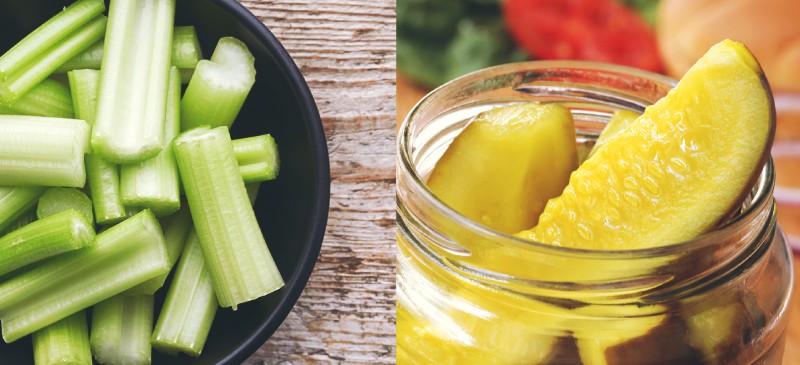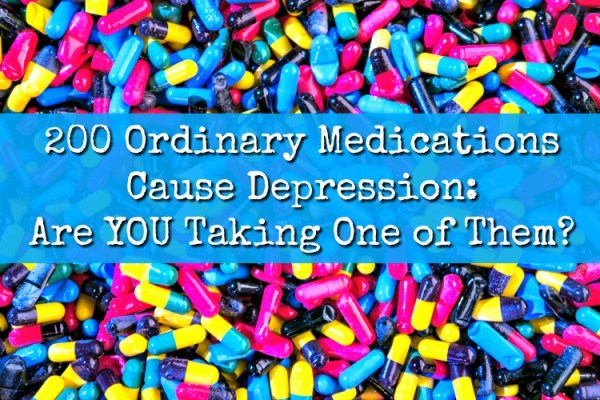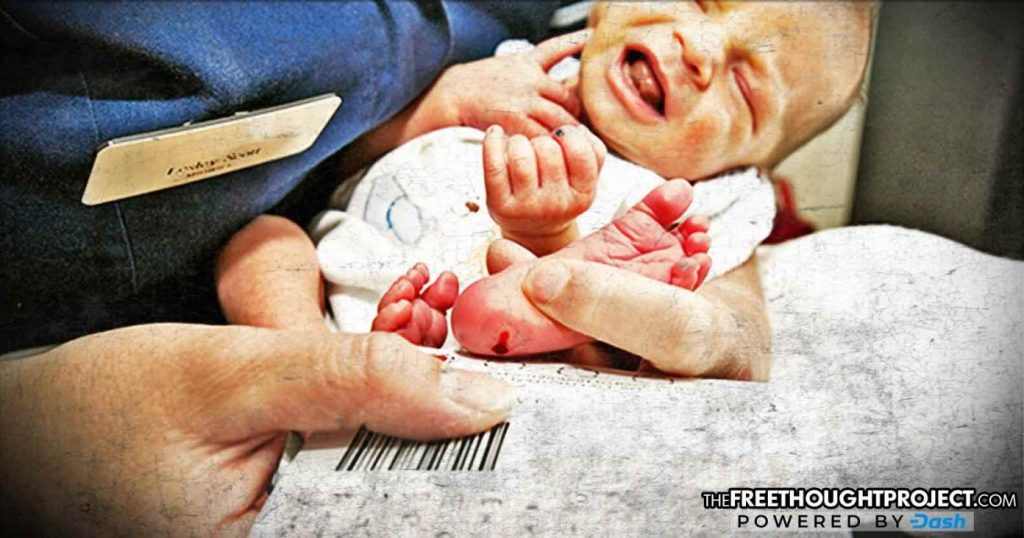The Best and Worst Foods for Your Teeth (Including the #1 Most Damaging Food)

Are you taking time to think about the best and worst foods for your teeth? You may be brushing your teeth, flossing regularly and visiting your dentist twice a year, but are the foods you’re eating supporting a healthy smile?
While I advise doing that, the foods and drinks we consume also play a significant role in keeping our teeth in tip-top shape, too. Here are the best and worst foods for your teeth.
How Food Impacts Teeth (for better or worse!)
Like the rest of your body, teeth require specific nutrients to thrive. Foods rich in calcium, vitamins A and D, phosphorous and fiber are all fantastic for strengthening and protecting your teeth. (1) Foods that generate saliva and require some serious crunching are also beneficial, helping rid teeth of stains and prevent decay. (2)
But not all foods and drinks are teeth-friendly. Certain foods can erode teeth enamel, promote tooth decay or are just plain dangerous for your teeth — ever try biting into a candy apple?
So what are the best and worst for your teeth, a smile and happy mouth? Keep reading.
Best Foods for Your Teeth
Celery
Perhaps the most dippable veggie, celery is a dentist’s dream. Celery, along with other crunchy foods, forces you to chew more to eat it, in turn producing more saliva. Saliva production is a big deal, because saliva acts as the bloodstream of your mouth, keeping the tissues healthy. It also functions as your personal mouthwash, getting rid of food particles in teeth and gums and helping to fight cavities. (3)
One of the benefits of celery involves its rough texture; it does double duty by lightly cleaning the tooth’s surface while you chew. Don’t love celery? Carrots, cucumbers and other crunchy vegetables also do the trick.
Chia Seeds
Seriously, if you aren’t eating chia seeds yet, what are you waiting for? Not only are they beneficial for digestive health and boosting energy, but chia seeds contain vitamins and minerals healthy teeth love, like calcium, vitamin A, fiber and phosphorous. (4) They’re super easy to incorporate into your diet, too; I love adding a tablespoon of chia seeds to smoothies.
Coconut oil
A giant jar of coconut oil is something you want to have around the house. Aside from cooking, moisturizing and the 70-plus other coconut oil uses, it’s super useful for maintaining your dental health. Swishing a tablespoon of coconut oil in your mouth for 10 to 20 minutes draws out the toxins that collect in your mouth, helping to prevent tooth decay and create a clean environment where bacteria can’t thrive.
While oil pulling with coconut oil isn’t mainstream (yet!), researchers are finally taking note. One study found that after just seven days of oil pulling, participants experienced a statistically significant decrease in plaque and plaque-induced gingivitis. (5) Over the 30-day study, the amount of plaque continued decreasing, leading researchers to conclude that oil pulling is effective in reducing plaque formation and gingivitis. Another review found that, based on current research, oil pulling can be used alongside traditional oral health maintenance, like brushing and flossing, with positive results. (6)
Dairy Foods
Lovers of dairy, rejoice. Cheese, yogurt and milk are still some of the best foods and drinks for your mouth, thanks to all of the calcium they contain. Calcium helps prevent tooth decay and keeps teeth healthy. (7) What’s unique about dairy — and cheese in particular — is that it contains casein, a protein that strengthens and repairs tooth enamel. (8)
When it comes to dairy, I tend to look for raw, goat dairy products from small-scale producers I trust. For an extra nutritional bump, go for low-sugar, fermented products like kefir.
Fatty Fish
Fish rich in omega-3 fatty acids, like wild-caught salmon and sardines, aren’t just tasty, they’re good for your teeth as well. These fish are full of vitamin D, which helps the body absorb calcium (stronger teeth!) and phosphorous, which helps protect tooth enamel. Omega-3 fatty acids have been found to reduce periodontitis, otherwise known as gum disease. (9, 10) If you’re not a fish fan, you may want to consider fish oil supplements instead. And if you do eat fish, be sure to avoid these fish you should never eat.
The Absolute Worst Foods for Your Teeth
Acidic Foods
If you love a glass of orange juice in the morning or adding lime juice to your cocktail, I hate to break it to you, but you’re eroding your teeth enamel. The acids found in citrus breaks down the enamel, causing irreversible damage. Lemon juice and grapefruit juice seem to be the worst offenders, though, in one study, researchers found that orange juice decreased enamel hardness by 84 percent. (11, 12)
If you can’t put down your favorite citrus drink, I recommend you enjoy it all quickly, instead of taking your time and giving the acids more time to connect with teeth, and then rinsing with water afterward.
The benefits of lemon water are vast, so instead of giving it up altogether, here are smarter ways to enjoy it:
- Don’t brush your teeth before drinking lemon water
- Dilute lemon juice well with water
- Use a paper or stainless steel reusable straw (no plastic)
- Rinse mouth out with baking soda mixed with water after drinking lemon water
- Wait at least 30 minutes before brushing your teeth after drinking lemon water
- Use remineralizing toothpaste
If you enjoy apple cider vinegar diluted with water, avoid brushing your teeth for at least 30 minutes before and after drinking, rinse your mouth out well after drinking it and consider using a reusable straw.
White Bread
Hopefully, you’re already avoiding white bread since it’s full of empty calories and refined carbohydrates, but in case you needed one more reason, white bread is pretty awful for your teeth, too. The plain ole sliced variety sticks into the crevices of your teeth, inviting bacteria. And after chewing, the bread’s enzymes are converted to sugar, wreaking more havoc on your dental health. (13)
I don’t recommend eating tons of bread, but I do occasionally eat sprouted grain bread. Soaking and sprouting grains, seeds and nuts breaks down some of the enamel-harming phytates.
Sports Drinks
Here’s one more reason that, unless you’re a hard-core athlete, you should be skipping sports drinks. Like soda, sports drinks harbor sugar, with some containing up to 13 teaspoons, which eats away at teeth. (14) And although they might not seem like it initially, sports drinks are highly acidic; one study found that they’re even more acidic than soda, eroding teeth enamel. (15) Combined with the fact that most people don’t chug a sports drink, but drink it slowly over a period, and you’ve got a beverage that’s severely damaging to teeth.
Pickles
Acid strikes again, this time in the form of a favorite sandwich topper. The vinegar in pickles, which gives them that sour flavor we love, also adds to its acidic content. One study of more than 2,300 students in the U.K. found that pickles wore teeth down more than any other food. (16) If you can’t give up pickles, eat them in one sitting instead of casually munching on them, and rinse your mouth afterward.
Dried Fruits
If you’re eating dried fruit with your trail mix, you’re hurting your dental health. For starters, dry fruit — even those without added sugars — usually still have a high amount of the stuff. That’s bad because the harmful bacteria in our mouths feed on sugar. Eww. Adding insult to injury, dried fruits often get stuck in your teeth, inviting even more bacteria to the party. Your best bet? Skip the dried fruit and opt for the fresh stuff.
Read Next: How to Reverse Cavities Naturally & Heal Tooth Decay



